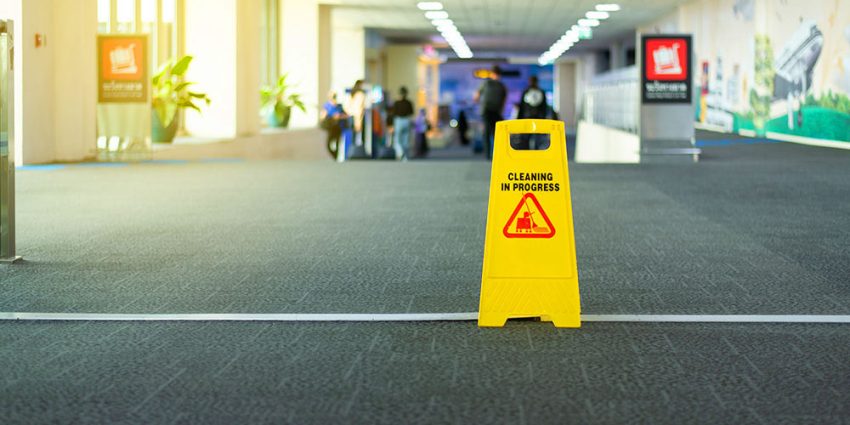Imagine walking into a commercial space with gleaming, spotless floors that reflect the professionalism and attention to detail of the business. Maintaining commercial floors isn’t just about aesthetics; it’s about creating a safe, welcoming environment for employees, clients, and customers. Keeping your floors clean and durable requires a mix of routine maintenance, proper cleaning techniques, and preventative measures. Let’s dive into the best practices for maintaining commercial floors and ensuring they stand the test of time.
Routine Cleaning and Maintenance
Regular sweeping and vacuuming are your first lines of defense against debris buildup. Dirt and grit can act like sandpaper, scratching and wearing down floor surfaces. Make it a daily habit to clean high-traffic areas, especially entrances and hallways, to prevent dirt from spreading throughout the space.
Accidents happen—coffee spills, muddy footprints, and food crumbs are inevitable in a bustling commercial environment. The key is to address spills and stains promptly. Keep spot-cleaning supplies handy and train staff to tackle messes as soon as they occur. This not only maintains cleanliness but also prevents stains from becoming permanent.
Daily cleaning is crucial, but it’s not enough on its own. Regular deep cleaning sessions, such as monthly or quarterly, are essential to remove embedded dirt and grime. Depending on your flooring type, this might involve professional steam cleaning for carpets or using specialized scrubbers for hard floors. Deep cleaning rejuvenates your floors and extends their lifespan.
Choosing the Right Cleaning Products and Equipment
Not all floors are created equal, and neither are cleaning products. Using the wrong cleaner can damage your floors, leading to costly repairs or replacements. Select cleaning agents specifically designed for your flooring type—whether it’s carpet, tile, or hardwood. Always check manufacturer recommendations and test new products in inconspicuous areas first.
Your cleaning equipment is only as good as its condition. Regularly maintain vacuums, scrubbers, and other tools to ensure they’re operating effectively. Replace worn-out parts and clean equipment after each use to prevent spreading dirt and bacteria.
High-traffic zones, like lobbies and corridors, are more prone to wear and tear. Protect these areas by using mats and rugs to catch dirt and moisture before it reaches the main flooring. Rotate and clean these protective coverings regularly to maintain their effectiveness.
Preventative Maintenance
-
Regular Inspections
Conduct periodic inspections to identify and address potential issues early. Look for signs of wear, damage, or areas that need special attention. Early detection can save you from expensive repairs down the line.
-
Preventative Treatments
Applying sealants and coatings can protect flooring surfaces from stains, moisture, and wear. These treatments create a barrier that makes cleaning easier and extends the life of your floors. Follow the manufacturer’s guidelines for application and reapplication.
-
Staff Training
Educate your staff on proper cleaning techniques and maintenance practices. Ensure they understand the importance of immediate spill cleanup, correct use of cleaning products, and regular maintenance schedules. Well-trained staff are your best allies in maintaining clean and durable floors.
Enhancing Floor Durability
Invest in high-quality flooring materials that can withstand heavy use. Durable options like ceramic tiles, commercial-grade carpets, and hardwoods are designed to handle the demands of a busy commercial environment.
Correct installation is crucial to prevent issues like bubbling or warping. Hire experienced professionals to install your floors and ensure they follow the manufacturer’s guidelines. A well-installed floor is less likely to develop problems over time.
Seasonal Considerations
-
Weather Impacts
Adjust your cleaning and maintenance practices based on seasonal weather conditions. For example, during winter, use mats to catch salt and moisture from snow to prevent damage to your floors. In humid seasons, ensure proper ventilation to avoid moisture buildup.
-
Special Events
Prepare for increased wear and tear during special events or high-traffic periods. Implement additional cleaning measures and consider temporary protective coverings to safeguard your floors.
Conclusion
Maintaining commercial floors is a blend of consistent cleaning, preventative measures, and choosing the right products and techniques. By implementing these best practices, you can keep your floors looking pristine and extend their lifespan. Remember, well-maintained floors not only enhance the aesthetic appeal of your space but also create a safer, more welcoming environment.
Ready to keep your commercial floors in top-notch condition? Consult with our experts for personalized maintenance plans tailored to your needs. Contact us today for professional floor care services that ensure your surfaces remain clean, durable, and impressive.

